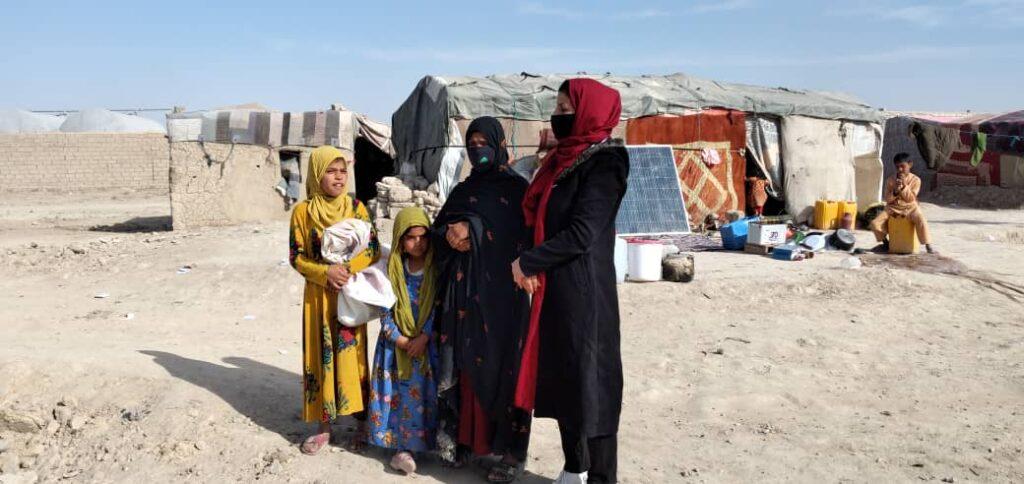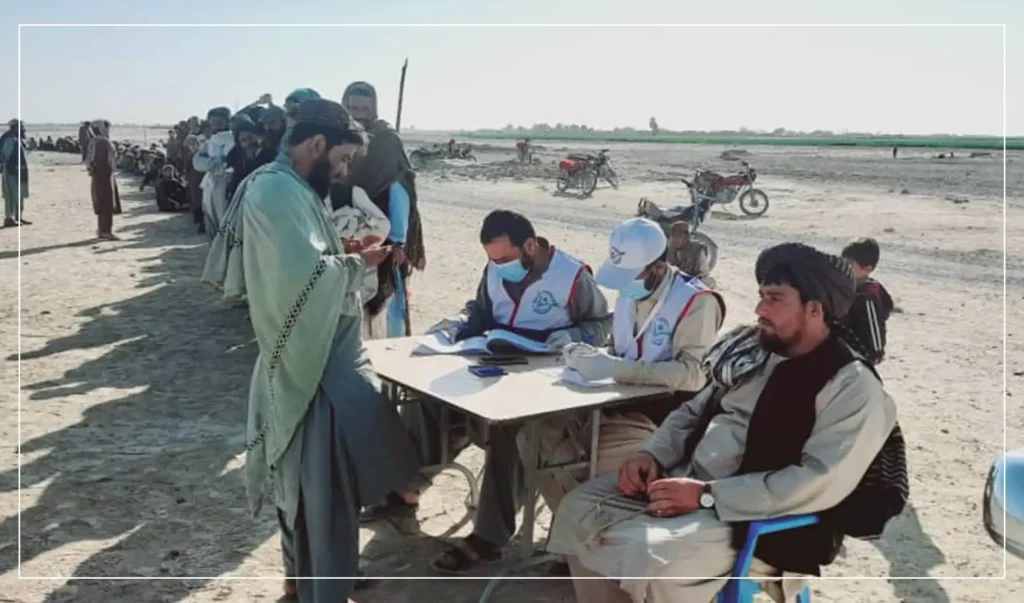ZARANJ (Pajhwok): Some residents of western Nimroz province claim the humanitarian aid distribution process is not transparent, but local officials reject their assertion.
After the political change of August 15, 2021, the international community suspended all but emergency aid to Afghanistan and the US froze nearly $9.5 billion in assets belonging to the central bank.
However, when the economic situation of the Afghans worsened, some countries started providing food packages and other financial aid to the needy families of the country.

Some residents of Nimroz province say the humanitarian aid has positively impacted people’s lives, but they claim that residents of remote areas have never received the aid at all.
Mahjabeen Naroee, a resident of Sher Ahmad village of Zaranj city, is one of them who complain about lack of transparency in distribution of the humanitarian assistance.
Naroee lost her house, animals and other belongings to recent floods. She said that she had never seen aid giving officials arriving in her village.
Mahjabeen told Pajhwok Afghan News: “There is no poorer than us. Some families in Nimroz have been receiving aid package since years, but we who lost all of their belongings have never received any assistance. We applied thrice at the governor’s office for assistance, but we were not allowed even to visit him”.
She said all 40 families of her village were extremely poor and they had no income source. They wrote to the Disaster Management Office, but got no positive answer, she said.
Dawlat Mohammad, 65, a representative of the internally displaced persons (IDPs) in Shahrak Sistan area also made a similar complaint.
Dawlat Mohammad said 50 IDP families from Parwan, Kunduz and Mazar-i-Sharif lived in Zaranj and they had so far received no financial or food assistance from the government or any other humanitarian organization during the past one and a half years.
He added when the weather became very cold in winter in Nimroz, they were distributed 20 tents and 60 blankets by the Disaster Management Directorate and after their survey, they received financial assistance only once instead of six times.
Rahmatullah, one of the nomads who lives in Jungle area behind the Nadali Hill, said they were 12 families living in six tents and they had never been distributed any assistance.
He said: “We are poor, we eat only dry bread, tea and cold water, even the Directorate of Kochis (Nomads) has never given us any assistance.”
He claimed humanitarian organizations conducted their surveys only in areas which were accessible or close to their offices and majority of the aid distribution cards were given to relatives of the officials of such organizations.
Fatima, 35, a mother of five children, also complained about unjust distribution of aid packages.
She claimed their village was hit by natural disasters and the people suffered losses, but no humanitarian organizations visited their village.
Sakhi Shahbazi, an economic affairs expert, confirmed the claims of the people and said most humanitarian organizations used to cover nearby areas to save their financial resources and thus residents of remote areas remained without any assistance.
He said lack of a proper mechanism through which deserving families could be identified, lack of a monitoring system, abuse of authority by the officials of humanitarian organizations, corruption, shortage of personnel and trained officials, interference of powerful individuals in aid distribution process were reasons of the unjust assistance distribution process.
“The aid distributing organizations spend most part of their budgets on salaries to their personnel, car rents, office rents, offices’ supplies which leave a negative impact on projects they implement,” Shahbazi said.
The aid can only be effective when such organizations prioritize food security and jobs generation for deserving people, he added.

However, Danish, head of Non-Governmental Organizations (NGOs) office of Nimroz province, rejected the aid distribution was process was not transparent.
“It is not true. The aid distribution process is ongoing transparently; those who complain want to receive more aid cards. Those who get aid cards once, they do not get the cards again that is why they complain”.
He said the Ministry of Economy had announced that 50 percent of the World Food Program (WFP) aid would be given to people in exchange for work and the remaining 50 percent to families who were without guardians or could not work.
Danish said the aid distribution process had been transparent. “The aid is being given to poor families, not everyone is entitled.”
aw/ma








GET IN TOUCH
NEWSLETTER
SUGGEST A STORY
PAJHWOK MOBILE APP